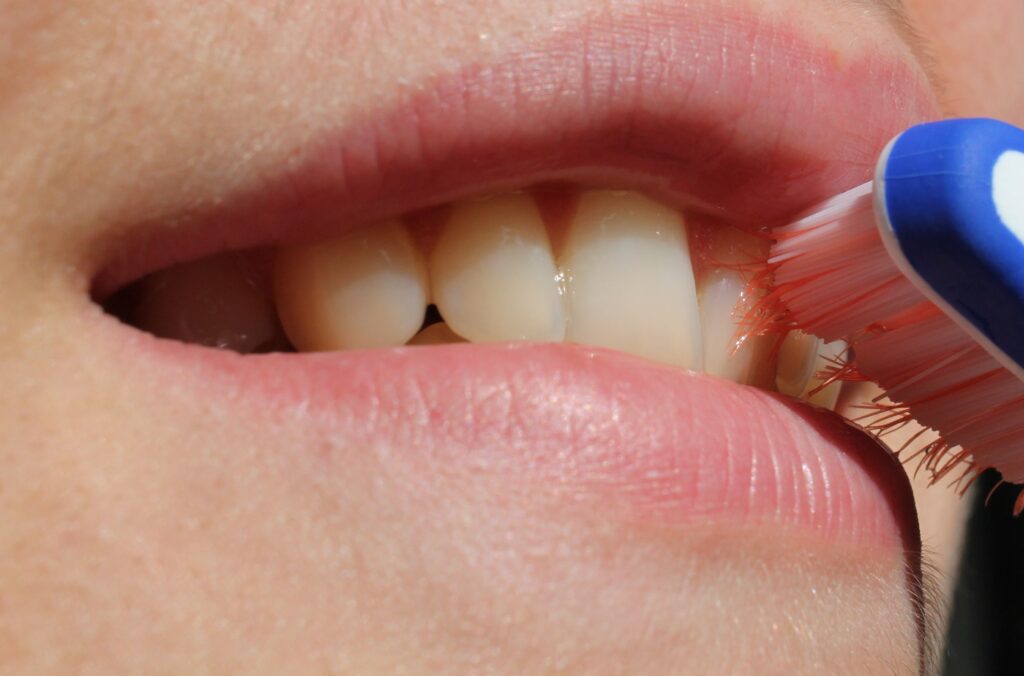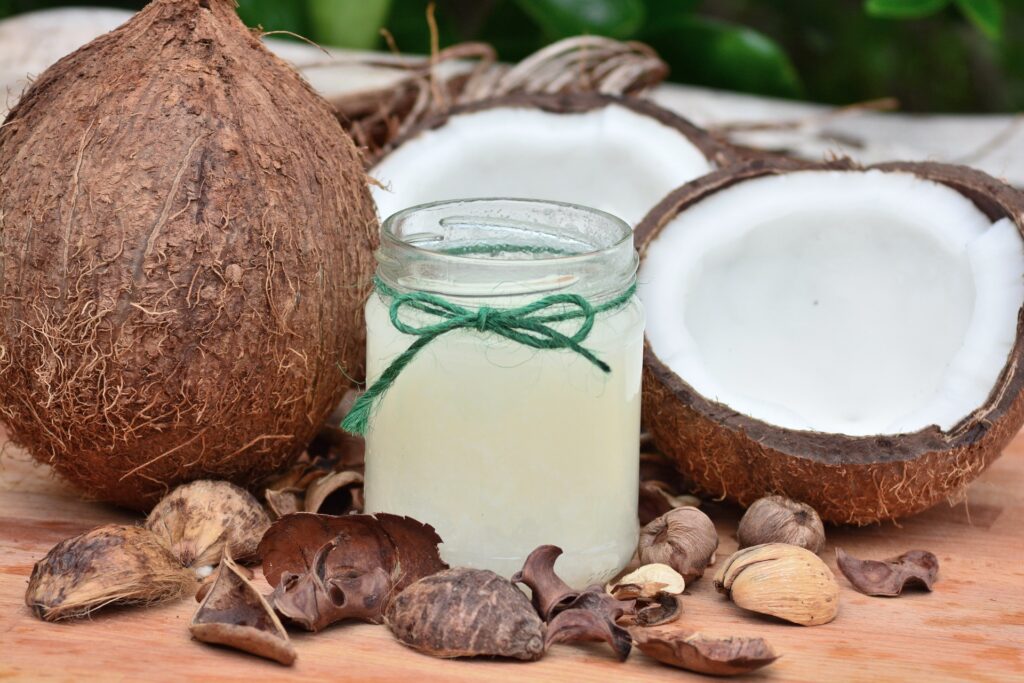
Table of Contents
Overview
A bright, white smile is often associated with good health and confidence. While professional teeth-whitening treatments can be effective, they can also be expensive and may use harsh chemicals. Fortunately, there are several natural methods to help whiten your teeth, many of which can be done at home with simple ingredients. In this guide, we’ll explore a variety of natural remedies that can brighten your smile safely and effectively, along with tips for preventing stains in the first place
Related : Simple Steps to Boost Bone Health
1. Brush Your Teeth Regularly and Properly
The foundation of a white smile is maintaining good oral hygiene. Brushing your teeth at least twice a day is essential for preventing stains and plaque buildup. Use a soft-bristled toothbrush and fluoride toothpaste, and make sure to brush for at least two minutes each time. Don’t forget to clean all surfaces of your teeth, including the back, as well as the gum line and tongue
Whitening toothpastes, which contain mild abrasives, can help remove surface stains over time. Studies show that regular brushing with these types of toothpastes can lead to noticeable improvements in tooth color over a few weeks. For even better results, consider using an electric toothbrush, which can clean more effectively than a manual one.
2. Use a Baking Soda and Hydrogen Peroxide Paste
Baking soda and hydrogen peroxide are popular natural whitening agents. Baking soda has mild abrasive properties that help scrub away stains, while hydrogen peroxide is a bleaching agent that can lighten the color of your teeth.
To create a whitening paste, mix one tablespoon of baking soda with two tablespoons of hydrogen peroxide. Brush your teeth with this mixture for two minutes, then rinse thoroughly. Research shows that using baking soda in toothpaste can effectively remove stains without being too abrasive on enamel.
However, it’s important to use this mixture in moderation, as overuse can lead to enamel erosion, making teeth more sensitive over time
Related: How to Whiten Your Teeth Effective Methods and Tips
3. Try Coconut Oil Pulling

Coconut oil pulling is a traditional Ayurvedic practice that involves swishing oil in your mouth to remove bacteria and toxins. While not directly proven to whiten teeth, oil pulling can reduce plaque, which may help your teeth appear cleaner and brighter over time.
To try this method, swish one to two teaspoons of organic coconut oil in your mouth for 10 to 20 minutes. Spit the oil out (do not swallow it) and rinse with water before brushing. Oil pulling may also help improve gum health and freshen your breath
Related : Cold vs. Flu: to Symptoms, Causes, Treatments, and Prevention
4. Eat Crunchy Fruits and Vegetables
Crunchy fruits and vegetables, such as apples, carrots, and celery, can help scrub your teeth naturally as you chew. Their high water content also increases saliva production, which helps wash away food particles and harmful acids that can contribute to staining
Certain fruits, such as strawberries and pineapples, are believed to have additional whitening effects. Strawberries contain malic acid, which may help remove surface stains, while pineapples contain an enzyme called bromelain that has been shown to help remove discoloration. However, it’s important to note that the effects of these fruits on tooth color are minor compared to professional whitening treatments.
5. Be Cautious with Activated Charcoal
Activated charcoal has gained popularity as a natural teeth-whitening remedy. It is believed to absorb stains and toxins from the surface of teeth. While some anecdotal evidence supports its use, studies suggest that it may not be as effective as other whitening methods. Furthermore, charcoal can be abrasive, potentially causing enamel erosion if used too frequently.
If you decide to try activated charcoal, use it sparingly and apply it gently to avoid damaging your enamel.
6. Avoid Foods and Drinks That Stain Teeth
Prevention is one of the best strategies for keeping your teeth white. Certain foods and drinks, such as coffee, tea, red wine, and soda, are notorious for staining teeth. If you consume these regularly, consider drinking through a straw to minimize contact with your teeth and brushing shortly afterward.
Tobacco, whether smoked or chewed, is another major contributor to yellowing teeth. Quitting tobacco not only helps keep your teeth white but also improves your overall health.
7. Limit Sugary and Acidic Foods
Sugar encourages the growth of bacteria in your mouth, which can lead to plaque buildup and tooth decay. The more plaque on your teeth, the more likely they are to appear yellow. Acidic foods and drinks, such as citrus fruits and soda, can erode enamel, exposing the yellow dentin underneath.
To prevent this, reduce your consumption of sugary and acidic foods, and try to rinse your mouth with water after consuming them. Brushing your teeth after eating acidic foods is also recommended, but wait at least 30 minutes to allow your enamel to recover from the acid exposure
8. Strengthen Your Enamel with Calcium-Rich Foods
Some tooth discoloration is caused by thinning enamel, which exposes the underlying dentin, a naturally yellow material. Consuming calcium-rich foods can help strengthen your enamel and protect your teeth from wear and discoloration. Dairy products like milk, cheese, and yogurt are excellent sources of calcium, as are leafy greens like kale and broccoli.
9. Be Wary of Other Natural Remedies
While many natural remedies claim to whiten teeth, not all are backed by scientific evidence. For example, apple cider vinegar is sometimes recommended for whitening, but its high acidity can erode enamel over time. Similarly, rubbing fruit peels (like banana or lemon peels) on your teeth is said to help with whitening, but there’s no scientific proof to support this.
Always be cautious when trying new whitening methods, especially those that could damage your enamel or gums. If in doubt, consult with your dentist.
The Takeaway
Achieving a whiter smile doesn’t always require expensive treatments or harsh chemicals. By maintaining good oral hygiene, using natural remedies like baking soda, and being mindful of the foods and drinks you consume, you can keep your teeth looking bright and healthy. While some natural remedies may take time to show results, their gentle approach can help prevent long-term damage to your teeth
Remember, consistency is key when it comes to teeth whitening. Stick to a routine that works for you, and consult with a dental professional if you have any concerns about your teeth or oral health.
With these natural methods, you can confidently show off your bright, healthy smile
FAQs on Natural Ways to Whiten Your Teeth
How long does it take to see results from natural teeth whitening methods?
Natural teeth whitening methods, such as using baking soda or coconut oil pulling, typically take a few weeks of consistent use to show visible results. However, the timeline can vary based on the individual and the severity of the stains.
Is baking soda safe to use for teeth whitening?
Yes, baking soda is generally safe to use for teeth whitening when used in moderation. However, excessive use can be abrasive and damage your enamel, so it’s recommended to use it sparingly—no more than a few times a week.
Can coconut oil pulling really whiten teeth?
While coconut oil pulling can help reduce plaque and bacteria, its whitening effects are usually subtle. It works primarily to clean the mouth, which may help your teeth appear brighter over time, but it is not a quick fix for whitening.
Will activated charcoal damage my enamel?
Activated charcoal can be abrasive and, if used frequently or too aggressively, may wear down enamel, leading to tooth sensitivity and yellowing. If you choose to use it, be gentle and limit its use to avoid damaging your teeth.
What foods and drinks should I avoid to prevent staining my teeth?
To avoid staining your teeth, limit consumption of coffee, tea, red wine, soda, and dark-colored berries. Additionally, smoking and tobacco use are major contributors to yellowing teeth. Using a straw for beverages and brushing afterward can help minimize stains.
Can natural methods replace professional teeth whitening treatments?
Natural methods can help maintain and mildly whiten your teeth over time, but they are generally not as fast or effective as professional treatments. For significant or rapid results, professional whitening by a dentist may be necessary.











